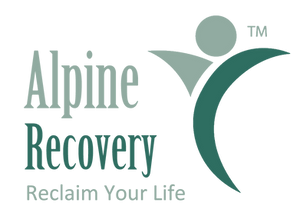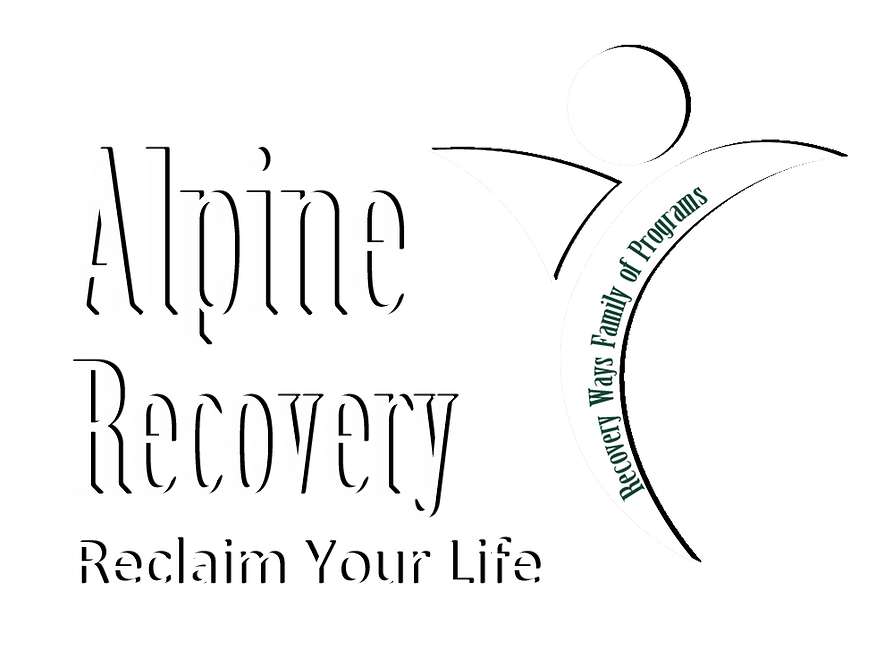Substance Use Recovery in WA
Substance abuse is an escalating challenge in Washington State. From the dense urban sprawls to quiet rural regions, the impact is profound, affecting lives, families, and communities. Substance use recovery in WA, while never easy, is possible with the right guidance and tools. If you or a loved one is seeking help, knowing the available resources and tailoring the recovery process can make all the difference. This guide explores critical steps for substance use recovery in WA—from understanding the disorder itself to finding the most suitable options for care. By the end, you’ll have actionable insights to help start the path to sobriety.
About Alpine Recovery
At Alpine Recovery, we specialize in providing personalized, evidence-based treatment for substance use disorders. With decades of combined experience, our team of expert counselors is dedicated to helping individuals overcome addiction and achieve lasting recovery. Did you know that tailored care significantly increases the chances of successful recovery? That’s why we create individualized treatment plans to meet each patient’s unique needs, combining proven therapies with compassionate support. Our serene facility in Arlington, Washington, offers a calming environment where patients can focus fully on their well-being and healing. What sets Alpine Recovery apart is our holistic approach. We integrate evidence-based practices, the principles of the 12-step community, and a strong focus on education to equip patients with the skills and knowledge for lifelong change. Collaboration is at the heart of our process. We partner closely with patients, empowering them to take control of their recovery journey in a safe and welcoming space. Our program is also designed with accessibility in mind—treatment is likely covered by most major insurance providers, ensuring support is within reach for those who need it.
Understanding Substance Use Disorders
Substance Use Disorder (SUD) isn’t a matter of weak willpower or a lack of self-control. It is a complex, medically diagnosed condition that involves the compulsive use of substances despite experiencing harmful consequences, both physically and mentally. SUD affects the brain’s reward system, leading to cravings and a loss of control over substance use, even when individuals are aware of its negative impact on their lives. Some common categories of SUD include dependency on alcohol, opioids (such as prescription painkillers or heroin), stimulants (like cocaine or methamphetamine), and sedatives (including benzodiazepines). Treatment often requires a combination of medical support, therapy, and long-term management to help individuals reclaim their lives.
Commonly abused substances in Washington State include:
- Opioids: (e.g., heroin, prescription painkillers): A growing public health crisis due to their highly addictive nature and the alarming rise in overdose cases across the state. These substances, often prescribed for pain management, can lead to dependency and misuse, posing significant risks to individuals and communities alike.
- Alcohol: Often downplayed, yet one of the most prevalent dependencies, it quietly affects countless individuals, influencing their daily choices and behaviors in ways that often go unnoticed.
- Methamphetamines and Cocaine: This issue is particularly concerning in urban areas like Seattle, where high population density and rapid development can exacerbate challenges such as housing shortages, traffic congestion, and environmental impact.
Each substance affects individuals differently, with impacts that can vary based on factors like frequency of use, dosage, and personal circumstances. These effects can disrupt not only their physical and mental health but also their career progression, personal relationships, and overall quality of life, creating a ripple effect of challenges that extend into nearly every aspect of their daily existence.
Recognizing the Need for Help
Acknowledging the problem is one of the hardest yet most critical steps toward Substance use recovery in WA. Here are some common signs of substance dependency to look out for:
- Increasing tolerance to a substance, which gradually leads to the need for consuming higher amounts to achieve the same desired effects over time.
- Experiencing withdrawal symptoms when not consuming the substance, such as irritability, anxiety, fatigue, headaches, or intense cravings, which can make it difficult to stop using.
- Neglect of responsibilities and relationships, leading to missed obligations, strained connections, and a lack of balance in personal and professional life.
- Physical and mental health can decline over time, often due to factors such as stress, lack of exercise, poor diet, or inadequate self-care, impacting overall well-being.
It’s common for psychological and social factors, such as shame and fear of judgment, to hinder seeking help. Your first milestone for substance use recovery in WA is understanding that addiction is not the entirety of your identity. Recovery begins with acceptance.
Exploring Options for Substance Use Recovery in WA
Once you’ve acknowledged the need for help, identifying the right recovery path becomes a crucial next step. Fortunately, Washington State provides a wide range of resources and programs designed to meet diverse needs. From outpatient counseling and support groups to inpatient treatment centers and specialized care, there are options available to help individuals take meaningful steps toward recovery and long-term well-being.
Treatment Modalities
Here are some of the most effective treatment approaches currently available in WA, designed to address a wide range of needs and provide support for individuals seeking better health outcomes:
- Relapse Prevention: This method focuses on identifying triggers that may lead to harmful behaviors and developing personalized coping strategies to effectively manage and avoid relapse. By addressing the root causes and building resilience, individuals can work towards long-term stability and well-being.
- Moral Reconation Therapy: MRT sessions, or Moral Reconation Therapy sessions, involve a combination of group discussions, individual work, and role-playing exercises designed to help individuals examine and improve their moral reasoning. Participants explore the underlying thought patterns behind their decisions, learn to recognize harmful behaviors, and develop strategies to make more ethical and constructive choices in the future. These sessions aim to foster personal growth and accountability, making them a valuable tool for building better decision-making skills.
- Partial Hospitalization Programs: A partial hospitalization program (PHP) offers intensive treatment for substance abuse while allowing individuals to maintain daily responsibilities. It bridges the gap between inpatient and outpatient care, combining the intensity of residential programs with outpatient flexibility. Participants attend therapy, group counseling, and workshops during the day, returning home in the evenings. PHPs address addiction’s physical, emotional, and psychological aspects, helping individuals build a strong recovery foundation while staying connected to daily life.
- Intensive Outpatient programs: This program is carefully designed to provide a high level of support and structure for individuals on their recovery journey. It ensures patients receive comprehensive care, personalized guidance, and access to necessary resources, all while allowing them to maintain their daily routines and continue living at home or in sober living accommodations. This approach promotes stability, independence, and long-term success in a comfortable and familiar environment.
Public vs. Private Treatment Centers
- Public Centers often cater to individuals with limited financial resources by providing flexible payment options, such as sliding scale fees based on income, to ensure services remain accessible to those in need.
- Private Centers Typically, they offer shorter wait times and highly personalized care plans tailored to individual needs. However, these services often come at a higher cost compared to standard options, reflecting the added convenience and attention to detail provided.
Understanding your medical insurance coverage and determining your eligibility for state programs can help you make informed decisions when choosing between various healthcare options. Taking the time to review what your insurance covers, as well as exploring assistance programs offered by the state, ensures you receive the care you need while managing costs effectively.
Integrating Holistic Approaches
Recovery is not just about quitting a substance; it’s about rebuilding your life holistically.
- Physical Wellness: Adopt a diet rich in whole foods like fresh fruits, vegetables, whole grains, and lean proteins to nourish your body with essential nutrients. Stay hydrated by drinking plenty of water throughout the day to maintain energy levels and support overall health. Incorporate regular exercise into your routine, whether it’s calming activities like yoga, adventurous pursuits like hiking, or structured gym sessions to build strength and improve fitness. Together, these habits can help you feel your best both physically and mentally.
- Mental Wellness: Engage in therapy or counseling to address challenges and support your mental well-being. The Pacific Northwest offers a range of options, including individual therapy, group counseling, and specialized support groups. Organizations like Alcoholics Anonymous (AA) and Narcotics Anonymous (NA) provide structured, peer-led gatherings for those recovering from substance use, while other custom groups focus on specific needs such as grief, anxiety, or family support. These resources create a safe space to share experiences, build connections, and foster personal growth.
- Spiritual and Community-Based Practices: The Pacific Northwest is widely recognized for promoting mindfulness practices such as meditation, yoga, and nature therapy, which take full advantage of its serene landscapes and tranquil surroundings. These practices are not only beneficial for mental clarity but also play a crucial role in emotional healing. Spending time in nature or engaging in meditative exercises helps individuals connect spiritually, offering a sense of grounding and balance. These techniques can serve as powerful tools to anchor individuals during challenging moments in recovery, fostering resilience and inner peace.

Navigating the Costs of Treatment
Financial and legal concerns often deter people from seeking help. However, Washington State offers robust systems to ensure care accessibility for many residents.
- Insurance Coverage: Medicaid along with private insurance policies often cover SUD treatments. Always verify benefits to understand what’s included.
- State Resources:
-
- Washington Recovery Helpline provides connections to affordable treatment facilities.
- Federal grants and programs can also assist uninsured individuals.
- Legal Protections: Laws like the Americans with Disabilities Act (ADA) provide workplace protections to individuals struggling with addiction.
Leveraging Technology in Recovery
Modern technology provides tools to complement traditional recovery efforts:
- Mobile Apps:
-
- Apps like Sober Grid and I Am Sober offer progress tracking, community support, and goal setting.
- Telehealth Services:
-
- Especially vital in rural parts of WA, telehealth ensures easy access to counseling and medical assistance remotely.
Gaining Strength from a Supportive Network
Building a strong, reliable support foundation is a vital recovery aspect:
- Peer Support Groups:
-
- Engage in Alcoholics Anonymous (AA), Narcotics Anonymous (NA), or Smart Recovery. Many towns in WA, including Tacoma, Spokane, and Bellevue, host weekly meetings.
- Family Engagement:
-
- Bring family into the fold through workshops or therapy. A family-oriented approach bridges communication gaps and fosters trust, contributing to long-term recovery success.
Staying on Track with Relapse Prevention
Relapse is part of the recovery process for many, but being proactive can dramatically reduce its likelihood. Try these strategies:
- Identify triggers in your environment, such as high-stress situations at work, specific social groups that make you feel uncomfortable, or even certain places or routines that heighten negative emotions. Recognizing these patterns can help you understand and manage your responses more effectively.
- Work with a professional to create a detailed relapse prevention plan that identifies triggers, coping strategies, and support systems to help you stay on track.
- Continue attending therapy sessions to work through personal challenges and support groups to connect with others who share similar experiences and provide mutual encouragement.
Conclusion
Everyone’s path to recovery looks different, but the most important step you can take is the first one. It’s not always easy, but taking that step can set you on a journey toward healing and hope. Washington offers a vast network of facilities, professionals, and supportive communities dedicated to helping you achieve lasting recovery. From counseling and therapy to inpatient and outpatient programs, there are resources tailored to meet your specific needs. Lean on your family and friends for encouragement, explore the professional tools and programs available, and don’t hesitate to seek support when you need it. Recovery is not a solo journey—having the right support system can make all the difference. Begin your personalized recovery today by calling us at 1 (360) 658-1388 or clicking Alpine Recovery. There’s no better time to take that first step.



